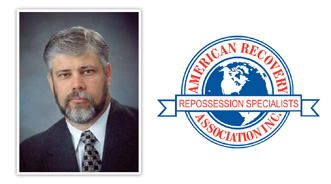ARA Members Rally Around Agent’s Death During Recent Summit

By subscribing, you agree to receive communications from Auto Remarketing and our partners in accordance with our Privacy Policy. We may share your information with select partners and sponsors who may contact you about their products and services. You may unsubscribe at any time.
DALLAS –
The recent North American Repossessors Summit incorporated what you might expect — insights from industry leaders, training sessions and advice on improving your repossession agency.
However, the element that stirred the greatest reaction from American Recovery Association executive director Les McCook came from repossessors’ response to a tragedy that happened just before the event.
ARA member Will Rivera was shot and killed on March 2 during a repossession assignment in St. Augustine, Fla. Rivera’s colleague on the assignment, Delbert Charles Power Jr., suffered severe gunshots wounds but survived.
About 400 summit attendees gathered $32,000, of which $18,000 went to Rivera’s family and another $9,000 was directed to Power to help with his recovery. The remaining amount was sent to the Recovery Agents Benefit Fund (RABF).
“What I’m most proud of … we talked about unity and everything else, but the people who are not members of the association came to me and they could not believe the love and the caring in that room or they didn’t believe that other people in the industry supported or talked to each other the way we did. It was all I could have ever hoped for,” McCook shared during an interview with Auto Remarketing.
McCook emphasized that veteran repo agents understand the industry dangers. Rivera worked for 25 years at ATCO/Bennett Recoveries, which is based in Jacksonville, Fla. Published reports indicated Rivera’s death stemmed from an incident regarding an outstanding vehicle payment of just $400.
Subscribe to Auto Remarketing to stay informed and stay ahead.
By subscribing, you agree to receive communications from Auto Remarketing and our partners in accordance with our Privacy Policy. We may share your information with select partners and sponsors who may contact you about their products and services. You may unsubscribe at any time.
“Most people understand on our side of the business understand it is what it is. We deal with it. We don’t like it. We don’t want it, but the thing is everyone came together for each other. Many of these people didn’t know who Will was or what association he was in. He was in the family of our business and they supported him and his family,” McCook said.
Beyond the repo agent’s tragic death, McCook emphasized the daylong summit provided attendees with plenty of information to take back to their agencies.
Commenting on keynote address by Mark Floyd, chief executive officer of Exeter Finance, McCook said, “Maybe he didn’t say everything that made our guys happy, but he spoke the truth and explained how and why they make decisions.”
McCook also said the heads of various associations shared valuable commentary. The group reports it was “standing room only.”
Ken Shilson, of Subprime Analytics and the National Alliance of Buy-Here, Pay-Here Dealers; and Jack Tracey, of the National Automotive Finance Association, each addressed the gathering.
Also making a noteworthy presentation was Tom Hudson, partner at Hudson Cook and one of the nation’s leading legal experts to the automotive industry.
The summit also featured a panel of executives from seven different lenders as well as technology providers aimed at making repossessing vehicles more efficient.
“I had a couple of members send me a note saying, ‘I got more out of that 10 minutes from one of the gentlemen about efficiencies … I’ve already gone back to implement them,’” McCook recollected.
“We tried to cover a lot of different practices so when you left there, you left with some positive and would immediately have an effect on your company. There were tools added to your toolbox that you could go home with,” he continued.
An ongoing discussion throughout the day revolved around ARA’s efforts to roll out its second industry scorecard. A joint effort with Subprime Analytics, the scorecard is an independent performance analysis derived from data records that can allow repossession companies to compare performance against peers. The scorecard measures individual companies and industry performance, such as recovery rates and time to recovery
The first scorecard released last year included only ARA members. This year’s edition seeks input from non-members, too.
“Everybody understands that non-members need to be included and I think we’ll have some,” explained McCook, who hopes participation might double this year. “We started last year with members only, but our goal this year was include companies from the outside. If we only get a handful, we can’t consider that to be a failure. We’re on the radar screen.
“Clients are very positive about the scorecard,” he went on to say. “They were asked about it and we had seven lenders say to one degree or another that they believe it will help lead this industry somewhere and they saw great value in the possibilities.”
Before the summit even began, ARA conducted the last scheduled session of its Collateral Recovery and Remarketing Accreditation Program, a project to train lenders, ARA members and their employees.
The association began its nine-date schedule back on Jan. 25 in Charlotte, N.C., and held events in Atlanta, Birmingham, Ala., three cities in Florida, Phoenix and San Diego.
“For a kickoff program I’m very pleased,” said McCook, who noted about 70 percent of the immediate feedback was excellent.
The ARA is now arranging its agenda for its annual convention. This year’s event is set for Aug. 18-20 in Jersey City, N.J.
“(The summit) increased our learning curve on what we can bring as value to our members and programs and presentations that concentrate on helping them improve even more,” McCook insisted. “We think the good will and understanding that we got out of NARS will carry over to the convention.”


